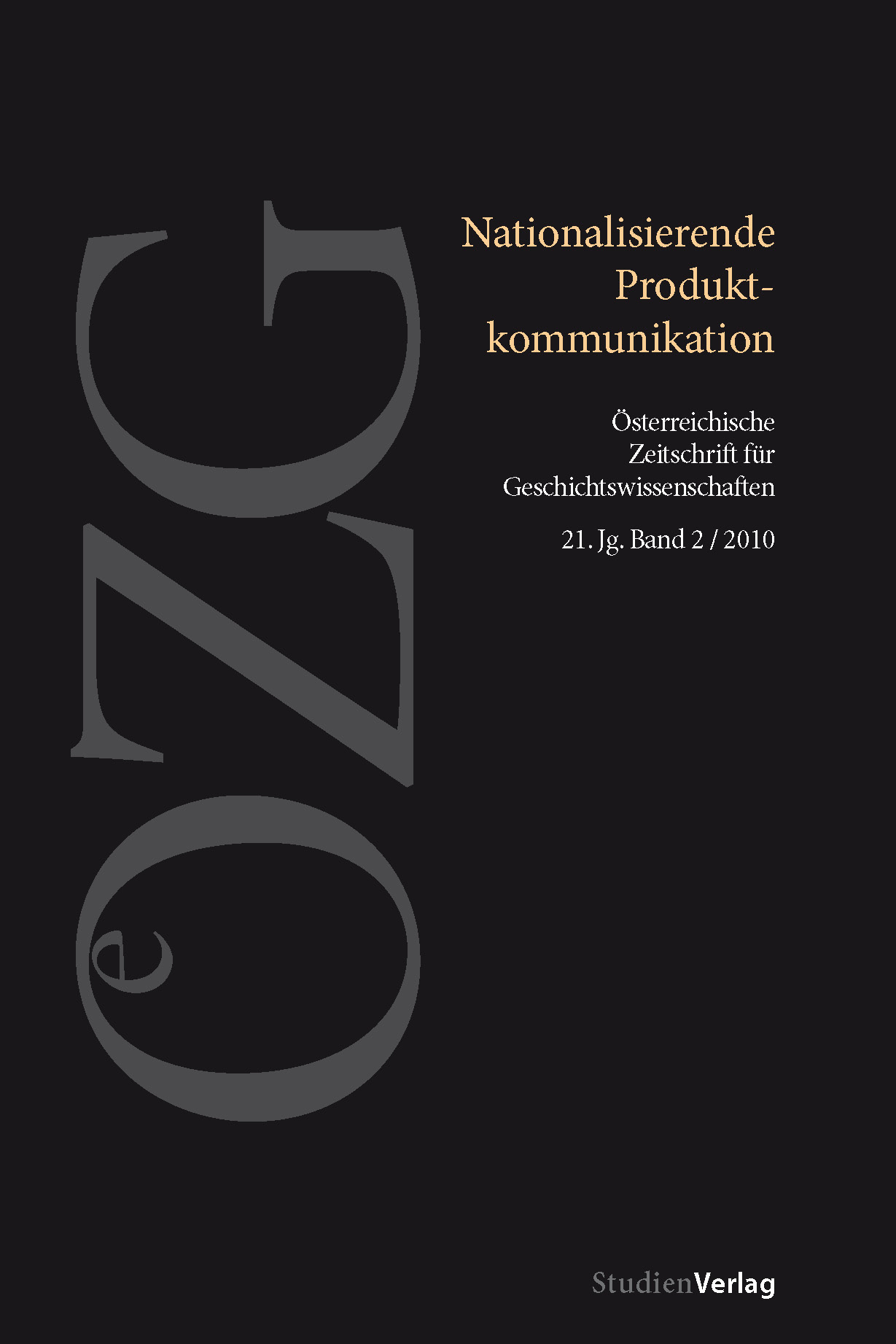Consumer Goods and the Nation
Theoretical and Methodological Reflexions
DOI:
https://doi.org/10.25365/oezg-2010-21-2-2Keywords:
commodities, conceptual metaphor, fetishism, nationalism, transcendental signifierAbstract
Following Philipp Sarasin, the nation will be analysed as a privileged ‘signifier’ which promises to fix the ever floating chain of ‘signifieds’ and make the world fully understandable. However, as a privileged (or transcendental) signifier cannot be but empty, the fulfillment of the promise comes at a price: it is ‘realised’ through objectification, which at the same time means fetishisation. This also inserts the nation into the everyday. This is when consumer goods come into play because they can serve as embodiments of the nation and make it a plausible experience in daily life. This constellation will be analyzed as a transformation of the mind-world-problem as it has been approached by John McDowell. Finally, cognitive semantics (George Lakoff / Mark Johnson; Gilles Fauconnier / Mark Turner) will be discussed as a methodological approach that enables the analysis of the nation’s objectification in discourse fragments in the mass media.


